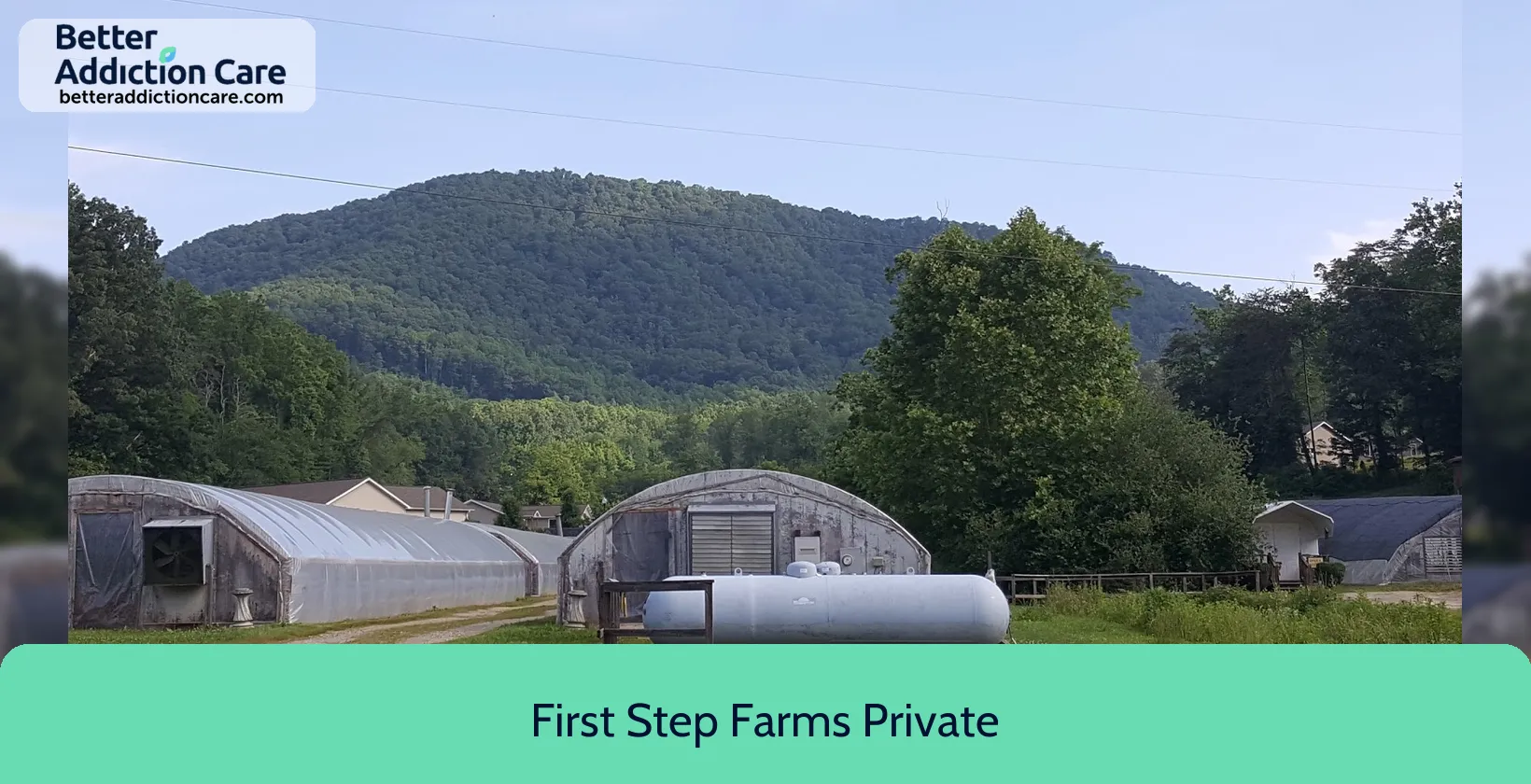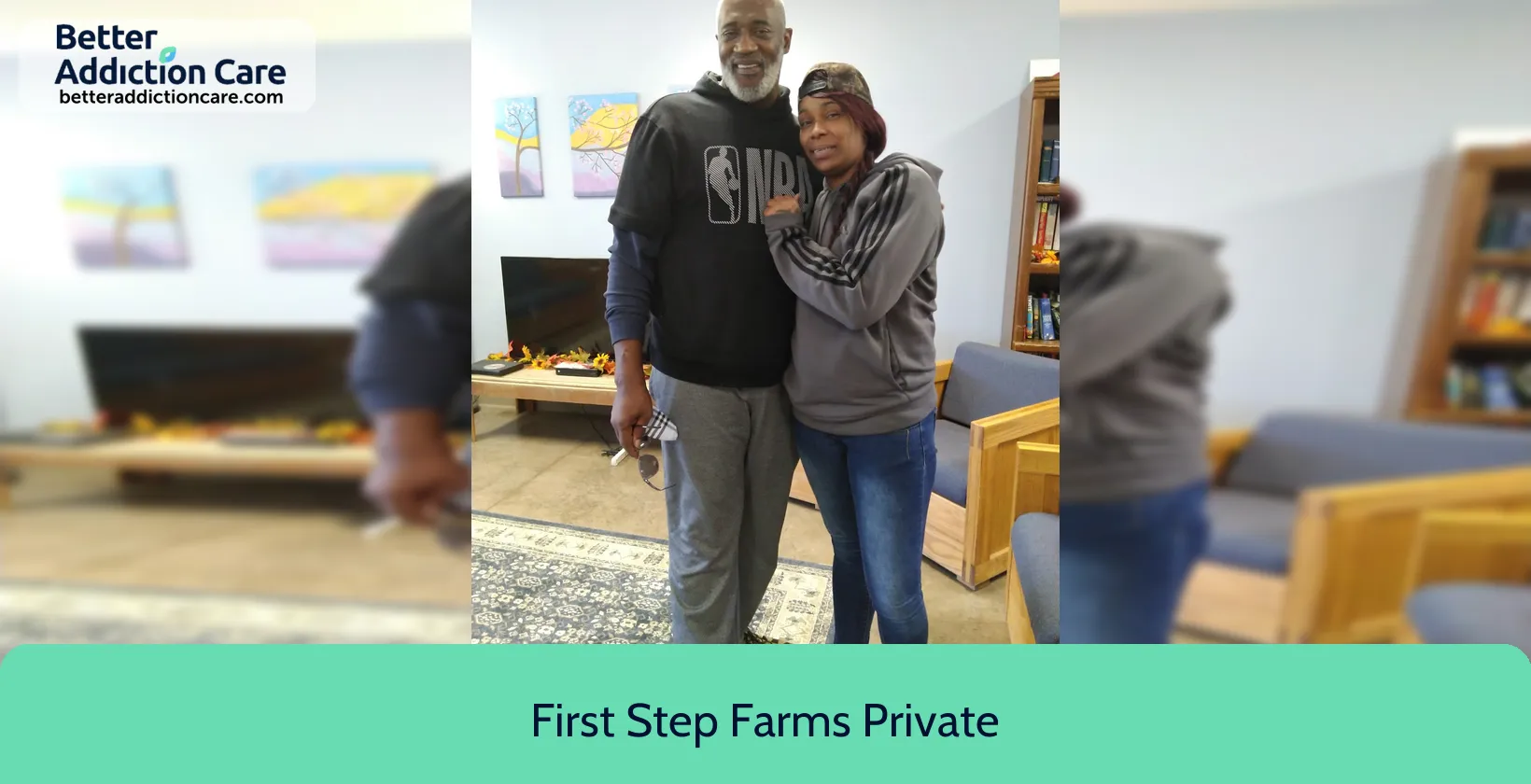First Step Farms Private
Overview
First Step Farms Private is a substance abuse treatment center for people seeking treatment near Buncombe County. As part of their treatment modalities for recovery, First Step Farms Private provides 12-step facilitation, trauma-related counseling, and individual psychotherapy during treatment. First Step Farms Private is located in Candler, North Carolina, accepting cash or self-payment for treatment.
First Step Farms Private at a Glance
Payment Options
- Cash or self-payment
- Private health insurance
- No payment accepted
- Federal, or any government funding for substance use treatment programs
- Aetna
Assessments
- Comprehensive mental health assessment
- Comprehensive substance use assessment
- Screening for tobacco use
- Screening for mental disorders
- Screening for substance use
Age Groups
- Adults
- Young adults
Ancillary Services
- Case management service
- Integrated primary care services
- Suicide prevention services
- Mental health services
- Social skills development
Highlights About First Step Farms Private
7.04/10
With an overall rating of 7.04/10, this facility has following balanced range of services. Alcohol Rehabilitation: 8.45/10, Drug Rehab and Detox: 6.00/10, Insurance and Payments: 6.27/10, Treatment Options: 7.46/10.-
Alcohol Rehabilitation 8.45
-
Treatment Options 7.46
-
Insurance and Payments 6.27
-
Drug Rehab and Detox 6.00
Accreditations
State department of health:

State Licenses, issued by government agencies, authorize rehabilitation organizations to legally operate within designated geographical areas. The specific licenses required for operation are typically determined by both the nature of the rehabilitation program provided by the facility and its physical location.
Treatment At First Step Farms Private
Treatment Conditions
- Mental health treatment
- Alcoholism
- Opioid Addiction
- Substance use treatment
- Co-occurring Disorders
Care Levels
- Detoxification
- Aftercare
- Halfway house
- Hospital inpatient treatment
- Long-term residential
Treatment Modalities
- 12-step facilitation
- Trauma-related counseling
- Individual psychotherapy
- Group counseling
- Experiential Therapy
Ancillary Services
Additional Services
- Pharmacotherapies administered during treatment
- Mentoring/peer support
- Breathalyzer or blood alcohol testing
Special Programs
- Clients with HIV or AIDS
- Clients who have experienced trauma
- Clients with co-occurring mental and substance use disorders
- Veterans
- Members of military families
Contact Information
Read our Most Recent Article About Drug Addiction
DISCLAIMER: The facility name, logo and brand are the property and registered trademarks of First Step Farms Private, and are being used for identification and informational purposes only. Use of these names, logos and brands shall not imply endorsement. BetterAddictionCare.com is not affiliated with or sponsored by First Step Farms Private.










